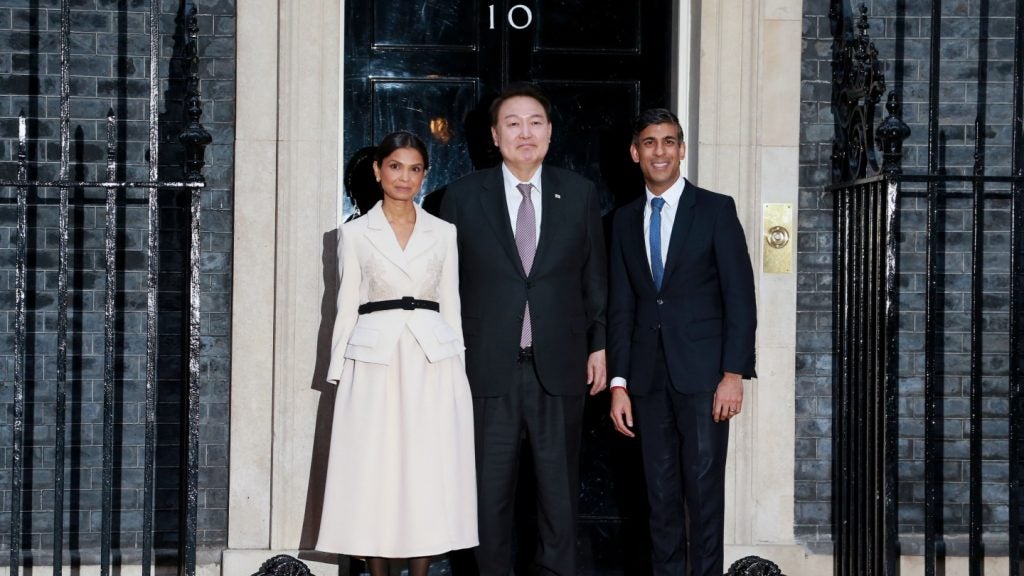
Alistair Darling, the UK Chancellor of the Exchequer between 2007 and 2010, has said that the British government may not be able to protect its financial system if the UK’s exit from the European Union dampens confidence in lending to the UK.
In an interview with Verdict, the former Chancellor said the UK’s debt levels and the subsequent downgrading of the UK’s credit rating in September 2017 by Moody’s from Aa1 to Aa2 over Brexit-related growth fears have made the security of the UK banking system more uncertain.
Darling told Verdict:
We have got much higher debt now than we had ten years ago.
The debt levels are still very high and will remain so for probably 30 years if not longer. We were able to do an immediate bailout of £50bn in 2008, but there was liquidity support and all the other things that went with it because nobody ever doubted our creditworthiness.
I asked myself; if this happened today, post-Brexit, would you have the same leverage and influence, with the EU countries? And of course on the other side of the Atlantic it’s an open question as to what a Trump administration would do.
How well do you really know your competitors?
Access the most comprehensive Company Profiles on the market, powered by GlobalData. Save hours of research. Gain competitive edge.
 Company Profile – free sample
Company Profile – free sampleThank you!
Your download email will arrive shortly
Not ready to buy yet? Download a free sample
We are confident about the unique quality of our Company Profiles. However, we want you to make the most beneficial decision for your business, so we offer a free sample that you can download by submitting the below form
By GlobalData
Darling, now a member of the board of directors at American bank Morgan Stanley, said that the cooperation of the EU and the US had been essential in making the instant liquidity required for the bailouts available.
Read more: UK’s credit crunch Chancellor: hard Brexit will make SMEs vulnerable
He said:
I remember during the day of the 7 October, 2008, when RBS got into deep trouble, we had to keep it trading until the American markets closed,” said Darling.
So the Bank of England phoned their counterparts in the US Fed and said ‘Do whatever it takes to keep that bank trading until close of play’. At no point did they ever question who [was standing behind it].
Lending and credit markets are globalised but also relied on confidence and trust, both of which are under pressure via the Brexit process.
“When we did the bailout in 2008, one of the reasons it worked was because we were able to persuade the Americans and the EU to come in behind us,” said Darling.
If you look at our banks and our financial institutions, certainly some of the larger ones, none of them confine their trade to the UK: they are global institutions. Some others than RBS are less global than they were but they still trade across borders.
Anything you do to make cooperation more difficult or more reluctant, and you can’t exclude human nature here, if you have said to the rest of Europe: we’re off, and we don’t like you, and then, can you help us?
Look at the expulsion of the Russian diplomats [after the Sergei Skripal poisoning]. France is now saying, well, we want to see some evidence. The US has made a supportive statement but several days have elapsed before it did.
Taking back of control of regulation
The former chancellor said that Brexit would not lead to a taking back of control of regulation if the standard to enter the EU and US markets must be met to trade there.
“What is the optimal environment in which to work? I would argue that it’s in an open economy, one that trades across the world, not just with the EU but with everywhere else,” Darling said.
Given that especially in this area you’re dealing with regulation which affects what people do, it’s better to have an influence on how that regulation is formed, which is one of the things which worries me about Brexit.
If European rules are made for Europe, we have to effectively comply with them, because anything we do in this country that we sell into Europe has got to be compliant, as we would do where we sell into America.
Risk is evolving
Darling advised that mistakes of the past ought not to be forgotten, but that risk itself was constantly changing.
Apart from the fact you would like to think it was passed on down the generations, but it is difficult, because in 20 years’ time there won’t be many left who are in banks, and there won’t be that many cautionary tales.
I think all you can do is, through common sense or the regulatory system, say, whatever it is, it can go wrong. And a lot of this today was dominated by new technology, which is great, except that it can go wrong. Or if you can get all that access to [personal] information, somebody else can too.
There is no easy answer. People should be well advised that history repeats itself isn’t an idle thought.








